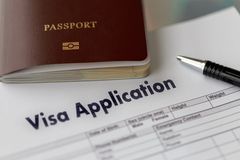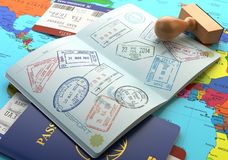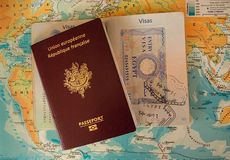In today’s world, traveling has become an integral part of our lives. Be it for leisure or work, many of us find ourselves regularly on the move across borders. However, one integral aspect that you may overlook is the safety of your travel documents. Losing these critical papers can turn a dream holiday into a
Visa Policy for Australia
The visa policy of Australia determines which visa or travel authorization a foreign national needs in order to visit the country.
The requirements for each individual depends on a number of factors, including nationality, length of stay, and purpose of traveling to Australia.
There are a number of different types of visa and travel authorizations for Australia.
Electronic visas and travel authorizations are available for holders of over 70 different passports for stays of short periods. These function as combined Australia tourist visas and business visas.
These digital options can be obtained online. This is the quickest and easiest way to get permission to enter Australia.
For long stays or if the foreign national plans to live and/or work in Australia, they must make an application for the relevant visas and permits at an Australian embassy.
Travelers from all other countries must obtain a consular visa for Australia from an embassy.
Australian visa policy dictates that almost all visitors must apply for a visa in advance of their journey to the country.
The only exceptions are citizens of New Zealand, who enjoy the right of abode and receive a Special Category Visa on arrival in Australia.
Australian immigration policy is generally consistent throughout the different states and territories that make up the mainland and many of the islands belonging to the country.
However, to visit certain islands belonging to Australia or the Australian Antarctic Territory, special authorization is required from the government.
Below you will find a comprehensive list of Australia’s rules and regulations regarding visas and travel to the country.




